News
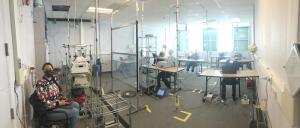
September 23, 2021
Having good room ventilation to dilute and disperse indoor air pollutants has long been recognized, and with the COVID-19 pandemic its importance has become all the more heightened. But new experiments by indoor air researchers at Lawrence Berkeley National Laboratory (Berkeley Lab) show that certain circumstances will result in poor mixing of room air, meaning airborne contaminants may not be...
Read more

September 1, 2021
Science innovators are invited to apply for the two-year fellowship program hosted at Cyclotron Road, an opportunity to advance hard technologies that have the potential for broad societal impact from concept to viable first product. Cyclotron Road is a division of the Department of Energy’s Lawrence Berkeley National Laboratory (Berkeley Lab). The fellowship program is run in partnership with...
Read more
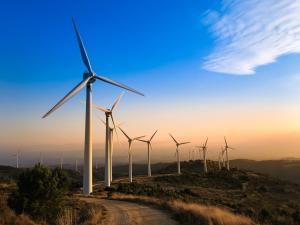
August 31, 2021
Wind energy continues to see strong growth, solid performance, and low prices in the U.S., according to a report released by the U.S. Department of Energy (DOE) and prepared by Lawrence Berkeley National Laboratory (Berkeley Lab). With levelized costs of just over $30 per megawatt-hour (MWh) for newly built projects, the cost of wind is well below its grid-system, health, and climate benefits....
Read more

July 30, 2021
All seventeen U.S. national laboratories and many prominent publishers, journals, and other organizations in scientific publishing announced today the beginning of a partnership to support name change requests from researchers on past published papers. Lawrence Berkeley National Laboratory (Berkeley Lab) is coordinating the effort. This agreement will allow researchers who wish to change their...
Read more
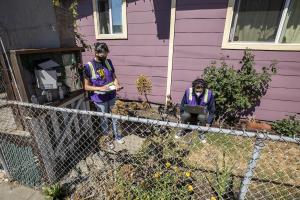
July 22, 2021
Companies like Purple Air and IQAir, with air pollution sensors that cost under $300, have brought air quality monitoring to the masses. But when Lawrence Berkeley National Laboratory (Berkeley Lab) scientist Tom Kirchstetter looked at Purple Air’s map last year during wildfire season, he noticed a big hole in Richmond, a city of 110,000 to the north of Berkeley. “You can see what appears to...
Read more
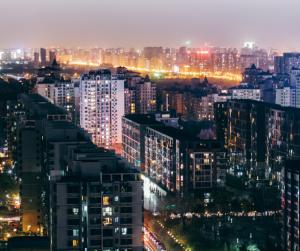
June 24, 2021
Key findings from the 2020 China Energy Outlook report — which outlines a path for continuous improvement of energy efficiency and emissions through 2050 in China — were recently highlighted by the American Council for an Energy-Efficient Economy (ACEEE). ACEEE Executive Director Steven Nadel summarized the analysis of China’s current energy policies and trends. While China has taken steps...
Read more

June 23, 2021
The Building Efficiency Targeting Tool for Energy Retrofits (BETTER), a technology that identifies cost-saving energy reductions in building portfolios, continues to win accolades and support from researchers and investors alike. Already the winner of multiple awards, including an R&D 100, recognizing it as one of 2020’s most innovative and disruptive technologies, BETTER recently became a...
Read more
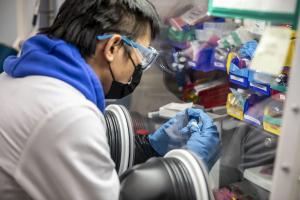
June 23, 2021
In our future electrified world, the demand for battery storage is projected to be enormous, reaching to upwards of 2 to 10 terawatt-hours (TWh) of annual battery production by 2030, from less than 0.5 TWh today. However, concerns are growing as to whether key raw materials will be adequate to meet this future demand. The lithium-ion battery – the dominant technology for the foreseeable future...
Read more
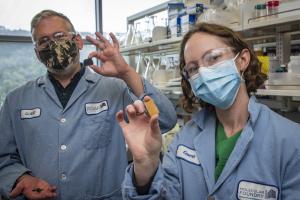
June 14, 2021
A multidisciplinary Berkeley Lab team has been working for several years to develop a game-changing plastic that, unlike traditional plastics, can be recycled indefinitely and is not made from petroleum. Their latest milestone was the release of an analysis showing the feasibility and potential outcomes of launching the unique material, called poly(diketoenamine) or PDK, into the market at an...
Read more

June 7, 2021
This month 11 scientists and engineers (pictured) will join the prestigious two-year fellowship program at Cyclotron Road based at the Department of Energy’s Lawrence Berkeley National Laboratory (Berkeley Lab) and UC Berkeley. Selected from a record pool of 300 applicants, the 11 individuals will make up Cohort 2021 of Cyclotron Road. As part of their two-year fellowship they will work to bring...
Read more

May 27, 2021
As more U.S. states and countries legalize medical and recreational marijuana, consumers are increasingly turning to new types of products that avoid toxic smoke inhalation. Researchers at Berkeley Lab who previously identified potentially harmful emissions from electronic cigarettes are now identifying the potential health risks of vaping cannabis. When a person vapes marijuana, they are inhaling...
Read more

April 30, 2021
Newborn babies, particularly those born under-weight or preterm, are susceptible to hypothermia, since newborns are not yet able to maintain their own body heat. Hypothermia is recognized to be a significant contributor to newborn disease and death, particularly in low- and middle-income countries. The World Health Organization and public health leaders have recommended best practices to prevent...
Read more

April 27, 2021
Remote and island communities face high energy costs and vulnerable energy infrastructures, and are at increased risk of natural disasters and climate change impacts. Sustainable solutions that emphasize holistic energy planning are of paramount importance, yet advancing energy transition plans for these small communities is often difficult due to limited resources or capacity. The Department of...
Read more
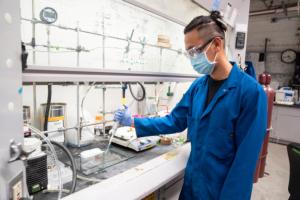
April 21, 2021
Despite our efforts to sort and recycle, less than 9% of plastic gets recycled in the U.S., and most ends up in landfill or the environment. Biodegradable plastic bags and containers could help, but if they’re not properly sorted, they can contaminate otherwise recyclable #1 and #2 plastics. What’s worse, most biodegradable plastics take months to break down, and when they finally do, they...
Read more

April 16, 2021
A Q&A with Berkeley Lab researcher Hanna Breunig on technoeconomic analysis, and how she uses it to make negative emissions technologies more competitive For new energy technologies, the time elapsed from when a breakthrough is made in a laboratory setting until when it is validated, scaled up, piloted, and then widely commercialized can be years or even decades. But in the race to avoid the...
Read more
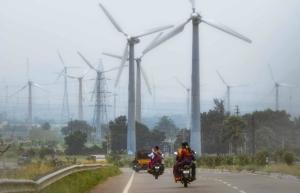
April 1, 2021
India has set ambitious targets for renewable power, with plans to quintuple its current wind and solar energy capacity by 2030. The country’s transition away from fossil fuels will have a significant impact on global climate efforts, since it is the world’s third-largest greenhouse gas emitter – although its per capita emissions are below the global average. A new study recently published...
Read more
March 18, 2021
Property taxes paid by wind energy projects are boosting school district revenues across the country. School districts are spending the new funds on capital improvements rather than putting them into classroom expenses, resulting in no change in academic outcomes, according to a new study from researchers at the University of Connecticut, Amherst College, and Lawrence Berkeley National Laboratory...
Read more
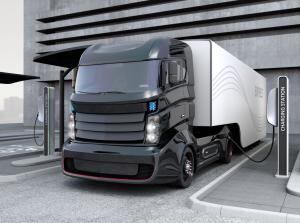
March 17, 2021
When it comes to electric vehicles, particularly for heavy-duty trucks, the limitations of battery technology are often seen as the main barrier to widespread adoption. However, a new analysis concludes that it’s the lack of appropriate policies around adoption incentives, charging infrastructure, and electricity pricing that prevents widespread electrification of commercial trucking fleets....
Read more

February 8, 2021
More than 300 people attended the 2021 Annual Institute conference, with this year’s event focused on sustaining healthy and energy efficient buildings through technician education. Key presentations were given by Lawrence Berkeley National Labortaory (Berkeley Lab) staff, including Mary Ann Piette, pictured, Division Director of Building Technology & Urban Systems (BTUS) in the Energy...
Read more

January 14, 2021
In 10 years of studying thirdhand smoke, which is the toxic cigarette residue that clings to virtually all indoor surfaces for months or years, Berkeley Lab scientist Hugo Destaillats said the most frequent question he hears from the public is how to remediate property where a smoker once lived. Remediation companies frequently use ozone generators to eliminate odors from mold, tobacco, and fire...
Read more

January 7, 2021
The Department of Energy’s Lawrence Berkeley National Laboratory (Berkeley Lab) has named Rachel Slaybaugh, associate professor of nuclear engineering at UC Berkeley, to lead Berkeley Lab’s Cyclotron Road Division. The announcement follows an international search. Until recently, Slaybaugh served as a program director at DOE’s Advanced Research Projects Agency-Energy (ARPA-E), whose mission...
Read more

October 23, 2020
An infant-warming device developed by two researchers at the U.S. Department of Energy's Lawrence Berkeley National Lab (Berkeley Lab) was recently recognized with an honorable mention in the 2020 Patents for Humanity awards. The Warming Indicator, a phase-change material temperature indicator, is an addition to the Infant Warmer that improves the latter’s functionality and safety. The Infant...
Read more

October 20, 2020
Seven researchers in the Energy Technologies Area have recently been honored with prestigious Director's Awards at Lawrence Berkeley National Laboratory (Berkeley Lab). The awards program recognizes Lab employees' accomplishments and commitment to excellence in support of the Lab's mission and strategic goals. Lab-wide, three staff members received Lifetime Achievement Awards, and another 34...
Read more

October 20, 2020
Seven researchers in the Energy Technologies Area have recently been honored with prestigious Director's Awards at Lawrence Berkeley National Laboratory (Berkeley Lab). The awards program recognizes Lab employees' accomplishments and commitment to excellence in support of the Lab's mission and strategic goals. Lab-wide, three staff members received Lifetime Achievement Awards, and another 34...
Read more
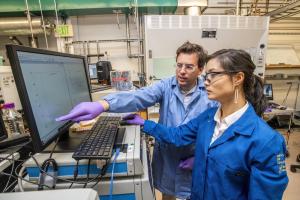
October 12, 2020
Hydrogen fuel cells are on the rise: Germany has rolled out hydrogen-powered trains, the San Francisco Bay Area will soon see the nation’s first hydrogen fuel cell ferry, and sales of fuel-cell vehicles are up globally. It’s a technology with the potential to provide a variety of clean energy options, especially in transportation.Now the Department of Energy has announced several major...
Read more